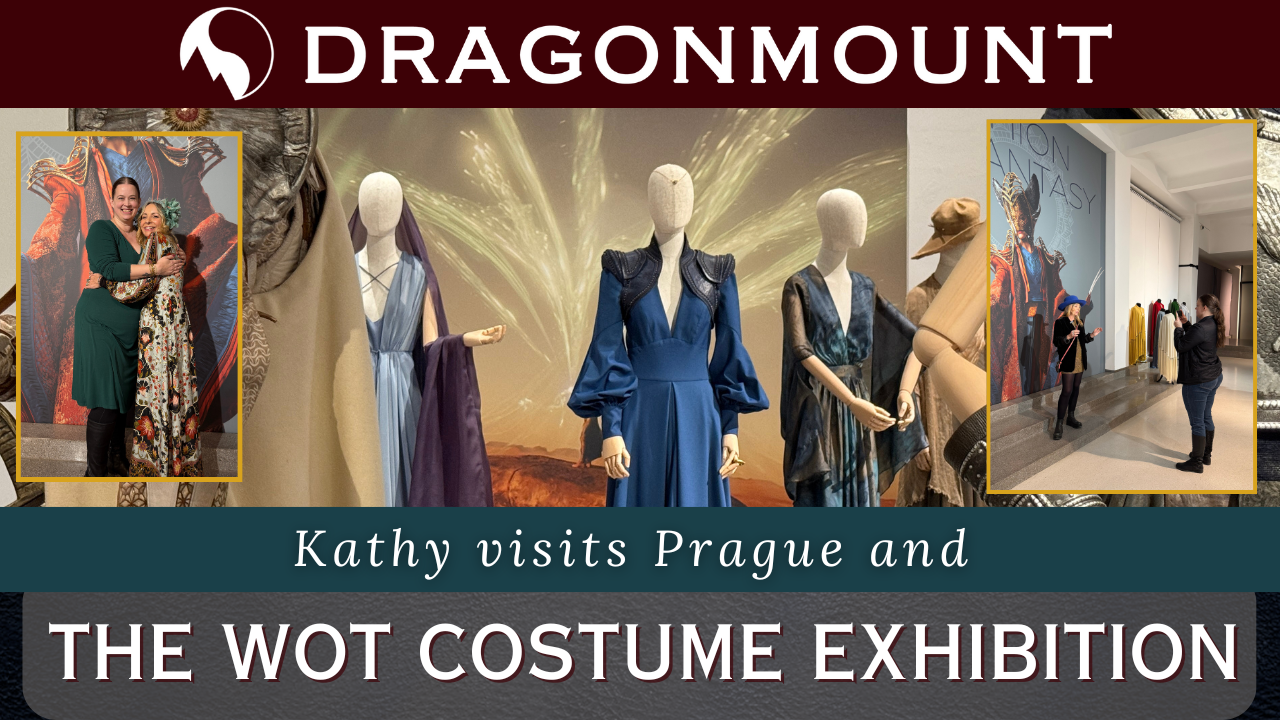THIS AND THAT
First off, thanks to NaClH2O and to Anonymous. I didn't know that Pentangle had gone on beyond their first two albums. I remember walking down the corridor in my hooch in Nam and hearing music coming from a doorway that made me duck in and ask who it was. The next time I could get by the Air Force PX, I picked up Pentangle, and later the second album. After that, I heard nothing, so I suppose I simply assumed they had vanished like so many other musicians. They're like writers, you know. I can't recall the number of albums I've listened to with excitement, like the first novels I've read with excitement, only to never hear from the artist again. In any case, I'll look up the early Pentangle stuff on CD and hope the others are as good as those first two. As for Anonymous nominating Fairport Convention as heavily influential on the music that followed, they just don't make the cut. I heard Fairport Convention when they first came out, as well as later, and never thought I was listening to anything that was coming close to the envelope much less pushing it. When I heard those first few notes from Pentangle, they stopped me dead. I knew it then. Envelope? Forget the stinking envelope, gringo. These guys were so far beyond the envelope, the light from the envelope was a rapidly diminishing flicker in their wake, struggling hopelessly to catch up. Over the horizon? They were over the event horizon and out the other side. Today, maybe it wouldn't sound so fresh, but the fact is, where rock ventures today, Pentangle was running for the sunrise better than thirty years ago. That's why so often when I listen, I find myself thinking, been there, heard that, long time gone.
Okay, down to the books and stuff. There are so many questions on my printout already (95 pages) that sometimes I doubt I'll ever get to all of them. It may take a long, long while to get to the older questions or comments. I'll do my best, though, for those that seem interesting in one way or another or won't give away what I don't want given away. But I'm not going to tell you how many hit points Lan has or whether Callandor is a plus-100 Sword of Ultimate Doom in ordinary sword usage, though. In those cases it's because I don't know and, more importantly, don't care.
For Emma, and sundry others, my apologies. No, not about twitting Emma. That's too much fun to apologize for. But the questions she had Sander hand in on the tour really were about Asmodean, not Nynaeve. I don't know why, but for some reason when I think "questions from Emma," the name "Nynaeve" simply springs into my head. Anybody out there think they have any explanations for this phenomena? It is a puzzlement.
For someone -- Marigan, I think, but my notes are a little wonky right about here -- the Crystal Throne is not the High seat of the Tamyrlin, none of the Forsaken were among the Nine Rods of Dominion, and the "Rods" were symbols of office. Mil Tesen was really just a peddler who happened to be in the right place to pass on news of Morgase's supposed death to Gawyn. Not everyone is somebody other than who they seem, you know. And finally, Da'concion means "the Chosen Ones" in the Old Tongue, which is used with more frequency among the Seanchan than among inhabitants of the eastern side of the Aryth Ocean.
For Begona, I'm afraid there aren't any further signings until late June of 2006. And those will be in Anchorage, Alaska and Seattle, Washington. If you send a letter snail-mail to Tor Books, they'll forward it to me, and I'll send you some bookplates -- if you want actual books signed, you must include the return shipping container and postage -- but that won't get you autographs until February earliest, I'd say.
For several people. Nynaeve could Travel after depositing Lan in Saldaea because she had "learned" that spot by Traveling to it. Remember, if someone Travels to a place, they now know the place they have Traveled to as well as if they had spent time there learning it.
For Weasel, my idea of the game of stones hasn't changed, though my way of describing it may well have. I try not to describe things the same way all the time. It gets boring after a while. I mean, think of Homer, who used some of the first macros. He gestured so, and the scribe taking the story wrote, "When first dawn with rosy fingers caressed the sky," or he gestured thus and the scribe wrote, "They sat at the oars row on row and smote the wine-dark sea to foam." Okay, okay; every time and culture has its catch-phrases which haven't yet become cliches. (Though they will. For anyone who has attempted, foolishly, to connect with a son or daughter or any other young person, especially one under the age of 25, by attempting to use their speech, take heart. Remember how you talked at 25, 18, 15? Nowadays, it would be good for a laugh from the younger set, right? Well, in another 15 years, the insular speech those younglings use today will be sufficient to send them scurrying from the room. And better still, sufficient to set their kids off in attacks of giggles and/or near-terminal eye-rolling. What goes around, comes around.)
For sheep the evicted, who has heard that I assigned various numerical strengths in the One Power to Rand, Ishamael and others based on a scale of 100 points, no I did not. I have said that in my notes I have such a scale that I use to keep track of everyone, but its main use is for the lesser characters, in particular Aes Sedai, so that I can check on who should defer to whom, who should only listen a little more attentively to whom, and so forth.
For Deadsy, who has a truly incredible lingerie (or is it just underwear in general?) fetish, some people in this word wear silk smallclothes, and some have their sigils embroidered on their smallclothes. Some Aes Sedai do use pigeons to send cake recipes, but only in cipher and only to people they have never met. It's an Aes Sedai thing.
For David, Warders don't slow. They age at a natural pace, but they do maintain vitality and vigor beyond the levels associated with most ordinary men. That said, I recently saw a photograph of a man in his seventies who had an absolutely ripped six-pack. In fact, from the neck down, if you were told you were looking at somebody in his 20s or 30s, you'd just think he was in incredible shape. And he wasn't bonded to anyone. Also, Aes Sedai can release a Warder from the bond. In fact, I have said that most Aes Sedai who have time to realize that they are dying will release any Warders they have in order to spare them the effects. I'm pretty certain I have said that publicly, by the way.
As an aside, I saw somewhere that I supposedly said that Sharina Melloy will not grow younger. If I did, then I misspoke. Sharina will not grow young, but she will grow younger in appearance, as will any other older women who begin to channel. For Sharina, by way of example, she will "regress" into apparent middle age, but no younger.
For kcf, one of Cadsuane's ornaments is a ter'angreal that can interfere with weaves. That is how she was able to disrupt Semirhage's use of Illusion.
I haven't seen J.K.Rowling's comments on reading and writing fantasy, nor any comments by Neil Gaiman or Terry Pratchett. Are you thinking of particular comments? It seems that you do for Rowling. For myself, I believe that the popularity of fantasy has expanded in the last decade or so, perhaps the last two decades, and expanded far beyond the level at which it began. The success of the Lord of the Rings movies and the Harry Potter phenomena are both results of this increase in popularity. Neither the LotR movie nor Harry are causes. Nor do big budgets or modern special effects have much to do with this popularity. People flocked to the movies in droves long before there was any chance that more than a (relative) handful had actually heard about the special effects.
The reason for the popularity of fantasy, and the reason science fiction is fading in comparison, is quite simple, really. Increasingly in books and films, including science fiction but also in everything from mysteries to so-called "main stream literary" novels, the lines between right and wrong have become blurred. Good and evil are more and more portrayed as two sides of the same coin. This is called realism. People by and large want to believe that there is a clear cut right and wrong, though, and that good and evil depend on more than how you look in the mirror or whether you're squinting when you do. In fantasy, you can talk about good and evil, right and wrong, with a straight face and no need to elbow anybody in the ribs to let them know you're just kidding, you don't really believe in this childish, simplistic baloney. That seems to be less and less so in other genres.
Does that mean fantasy all has to be goody-goody on the side of right and black-as-the-pit on the side of evil. No. In my own work telling right from wrong is often difficult. Sometimes my characters make the wrong choice there. Sometimes they do things are quite horrific. But they try to find the right choice. This is the way I think most people see the world and their behavior in it -- trying to do the right thing with the knowledge that sometimes you're going to make the wrong choice, and with "right" defined as more than simply being of benefit to yourself -- and they want to read books that reflect this. Right and wrong are not simply different shades of gray. Good and evil are not simply a matter of how you look at them. (Have you ever noticed the use of "of course?' As in, "The actions of the suicide bombers is quite horrific, of course...." You know that a "but" is coming, followed by an explanation of why their actions, while "quite horrific, of course" are also "entirely understandable under the circumstances," which come down to "the death and destruction is all somebody else's fault completely.")
As the view of the world, as expressed by the evening news and most books, has increasingly become that everything is really just shades of gray, people have grown more and more to want something that says choosing right from wrong may be difficult, seeing what is evil might be hard, but it is not only worth making the effort, it is possible if you try. Maybe not every time, but most of the time by and large. And that is the heart of the popularity of fantasy, and why it has grown. I suspect that somebody has a doctorate in the waiting simply by showing a correlation between the increase in popularity of fantasy on one hand and, on the other, the increase on the evening news and in most literature of the view that right and wrong, good and evil, are just matters of where you stand and how you're holding your head at the moment.
On the large scale, the gender relationships in the Wheel grew from the very beginnings of the books, really. I recall seeing a paperback book back in the 70s, a fantasy novel about a young woman who wasn't allowed to become a magician of whatever sort it was because she was a woman. The notion struck me as interesting, since it was the first fantasy novel with that theme that I had ever seen, but what really stuck with me was this. That novel was a simple reflection of the then-current mundane world, but what about if it were men who were not allowed to become whatever it was? Now that would be an interesting twist, and unexpected. Why would that be, and how could it be enforced? As Harriet has often pointed out, many of the world's gender inequalities stem from superior male upper body strength. (To which I usually say, "Oh, dear! Isn't that awful and unfair!" While pulling off my shirt and flexing my biceps, to be sure.) From that genesis grew the division of the One Power into a male and a female half with the male half tainted, giving a reason why men not only would not be allowed to become Aes Sedai, as they were not then called, but must not be allowed even to channel, again as it was not then called. From that, and from the history that I was even then beginning to put together for this world, though I didn't realize it then, came the result of 3000+ plus years when men who can wield the ultimate power, the One Power, are to be feared and hated above all things, when the only safety from such men comes from the one stable center of political, and other, power for those 3000+ years, a female center of power. The view I then had was a world with a sort of gender equality. Not the matriarchy that some envision -- Far Madding is the only true matriarchy in the lot -- but gender equality as it might work out given various things that seem to be hard-wired into male and female brains. The result is what you see.
Now as to communications and the lack thereof, these things are not commentaries on any sort of technologies. They are a commentary on the human navel. Do you really know anybody who actually tells everything he or she knows to everybody? Even when they really need to know? Maybe especially when they really need to know. Do you really trust people who think they always know what other people really need to know? May I postulate that this person has few close friends, those quite quiet when around him or her? There are a thousand reasons why we don't tell everything to everybody, including often things that we should tell. Maybe the information puts us in a bad light, so we withhold information, or perhaps shade the truth a bit. That's one of the most common. Or maybe we think the other person must already know because it is so obvious. Which can add the factor that we don't want to appear foolish for pointing out that the sky seems to be blue today. Or maybe we just didn't bloody well think of it. It has always struck me how unrealistic, how incredibly fortuitous -- you think ta'veren are centers of unrealistic coincidence? Huh! -- books are where almost everybody learns everything they need to know as soon as they need to know it, where almost nobody of any note or importance ever has to make decisions based on incomplete information, information that the reader may know is at least partly wrong. Lord, even when they just learn almost everything they need to know exactly when they need to know it, matters seem just too far-fetched. No, it isn't a commentary on technology. Just people.
For Sandar, you know very well that Emma would be disappointed if I stopped tugging at her pig-tail. Now as to the fellow who went mad in the cell next to Padan Fain and the other who committed suicide, neither is evidence for Lanfear's presence. Which is just as well. Repeat after me, slowly. Lanfear -- did -- not -- free -- Padan -- Fain -- in -- Shienar. Nor anywhere else, for that matter. There were two prisoners in the cells with Fain, both of them Bordermen who had some knowledge of Shadowspawn. And in the heart of the fortress here comes a troop of Trollocs and the Light alone knows what else. Put yourself in their place. Put yourself in a cage. You can't get out. You are in the dark. And here comes your worst nightmares walking in. Only it's worse than nightmares, because you know that these nightmares are real. You know what they do to human beings. You know they sometimes keep people alive a long time so they can have fresh meat. People don't need arms or legs to survive, so they can feed off you for days, maybe weeks. And you can't get out. You can't get away. You just have to shiver in your cage and watch them open up another of the cages. While you wonder whether they're going to open your cage, too. How do you escape? How can you get away? Maybe suicide is an option? At least it's quick. Quicker, anyway. But make up your mind fast, sport. While you're dithering, your mind might decide to make its own escape. That won't stop you from being butchered slowly, but at least you won't know it's happening. Maybe you can see why Lanfear wasn't necessary here?
Okay, that's it for now. I need to get back to writing.
All my best, guys.
RJ

















0 Comments
Recommended Comments
There are no comments to display.
Join the conversation
You are posting as a guest. If you have an account, sign in now to post with your account.
Note: Your post will require moderator approval before it will be visible.